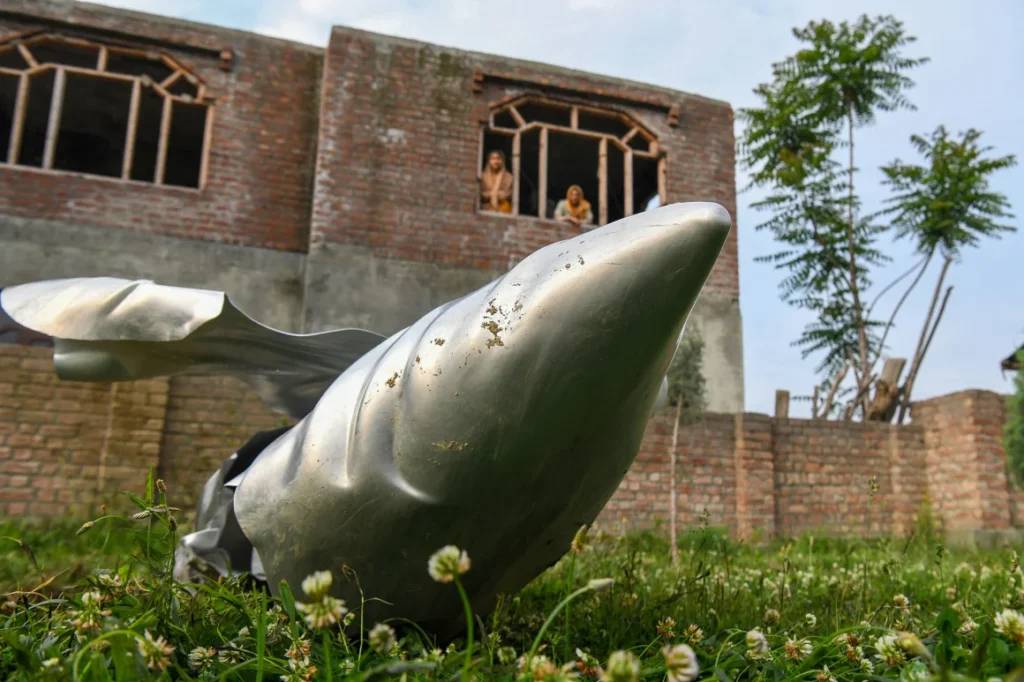India conducted military strikes inside Pakistan early Wednesday, targeting what it described as “terrorist infrastructure” in retaliation for a recent massacre of tourists in Indian-administered Kashmir. Pakistan claims to have shot down five Indian jets, marking a major escalation in tensions between the two nations. The strikes have raised fears of further conflict as both sides engage in intense military exchanges along their border.
Background of the Conflict
On Wednesday morning, India launched missile strikes on multiple sites across Pakistan’s Punjab province and Pakistan-administered Kashmir. The military operation, which India dubbed “Operation Sindoor,” was a response to a recent terrorist attack in Indian-administered Kashmir. The attack, which killed several tourists, was blamed on Pakistan-based militant groups.
Pakistan has confirmed casualties from the strikes, reporting at least 26 dead, including women and a young child, and 46 injured. The country’s Prime Minister, Shehbaz Sharif, condemned the strikes, calling them “an act of war,” and vowed retaliation.
Military Exchanges and Claims
Since the strikes, the two countries have exchanged heavy shelling across their shared border. Reports from local residents in both Indian and Pakistani border areas describe explosions and damage to homes. A journalist in Pakistan-administered Kashmir reported hearing multiple loud blasts, while a resident from Muzaffarabad recounted fleeing to safety after shells hit nearby buildings.
In a dramatic claim, Pakistani military sources stated that they had shot down five Indian Air Force jets, including three Rafale fighters, a MiG-29, and an SU-30. Additionally, one drone was reportedly destroyed. Pakistan’s air defense actions were described as a measure of “self-defense.”
Photos from the scene showed aircraft wreckage near a school building in Indian-administered Kashmir, but the identity of the downed aircraft remains unclear. India has not officially confirmed the downing of its jets, and CNN has not been able to independently verify the claims.
A Dangerous Escalation
Wednesday’s strikes are the most significant military action between the two countries since the 1971 Indo-Pakistan war. The operation, which took place deep inside Pakistani territory, marks a dangerous escalation in the longstanding conflict over Kashmir. Experts warn that retaliation from Pakistan is likely, and the situation is “serious and fluid,” according to Fahd Humayun, a political science professor at Tufts University.
Indian officials have maintained that their actions were targeted and precise, with the primary goal being to neutralize terrorist camps linked to groups like Lashkar-e-Tayyiba (LeT) and Jaish-e-Mohammed (JeM). India’s Ministry of Defense stated that the strikes were “focused, measured, and non-escalatory in nature.”
International Reactions and Rising Tensions
The international community has expressed concern over the growing violence. The United Nations and world leaders have urged both India and Pakistan to show restraint and avoid further escalation. The U.S. Department of State stated it is “closely monitoring” the situation.
Tensions have already resulted in disruptions to civilian life, with commercial flights avoiding Pakistani airspace and the airport in Srinagar, Indian-administered Kashmir, closed to civilian traffic. Several airlines have rerouted or canceled flights in response to the heightened security threat.
The Kashmir Conflict
The region of Kashmir has been a flashpoint between India and Pakistan since both countries gained independence in 1947. The two nations have fought three wars over the region, and the territory remains divided but heavily militarized. Both countries claim Kashmir in full, with India administering the region in the south and Pakistan controlling the north.
The ongoing conflict is rooted in a mix of religious, political, and territorial disputes, exacerbated by violent separatist movements in Kashmir. India has long accused Pakistan of supporting militant groups in the region, while Pakistan denies any involvement.
India’s Restraint and Pakistan’s Retaliation
Despite the severity of the situation, India has insisted that its military actions have been focused on specific terror targets. Indian officials emphasized that no Pakistani military facilities were attacked. However, analysts predict that Pakistan’s response is imminent. Ajay Bisaria, a former high-ranking diplomat, highlighted the importance of crisis diplomacy in managing further escalation.

